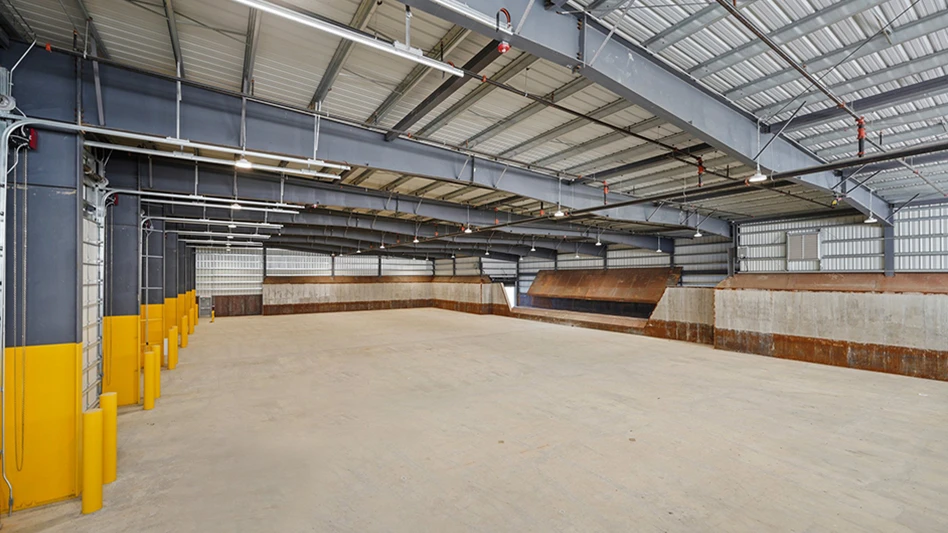
Residents of Lorain County in Ohio are engaged in a heated battle against a proposal to establish a landfill for incinerated hazardous waste. Ross Environmental Services, a hazardous and industrial waste management company, has sought a zoning change to reclassify part of its property from light industrial to heavy industrial. This change would enable the company to dispose of ash from its incinerators in a landfill known as a monofil.
Ross Environmental Services claims that the ash, once treated, no longer possesses hazardous qualities, and they adhere to strict regulatory requirements. Moreover, they assert that the monofil being constructed exceeds the required standards. Despite these assurances, local residents remain skeptical about the safety of the proposed landfill.
The company currently operates an incineration business in the township, and it had previously agreed to dispose of several hundred tons of material from a contaminated derailment site in East Palestine. Their request for a zoning change predates the derailment incident. They argue that managing their own waste onsite is cost-effective and ensures proper handling.
Initially, many neighbors expressed concerns about the health and environmental implications of the company's proposal, leading the Township to reject the rezoning request. However, Ross Environmental Services submitted a revised application, reducing the rezoning request from several hundred acres to 95 acres, with the monofil occupying 23 acres.
The primary concern of the neighbors is the potential contamination of the township's soil, air, and water by toxic chemicals present in hazardous waste. While Ross claims that residual materials in the ash are stabilized and covered in the double-lined monofil, residents argue that absolute safety cannot be guaranteed, even with precautions in place.
Opponents of the proposal also aise concerns about the vague definition of heavy industrial zoning, fearing it may pave the way for other undesirable developments. Ross Environmental Services counters this argument by emphasizing that industry and environmental regulations would prevent such situations. The company also highlights its longstanding commitment to the community that spans 75 years.
The Eaton Township Zoning Commission voted to continue the public hearing, granting commissioners additional time to review the request and evaluate available options. While Ross views the monofil as crucial for its future operations, opponents are hopeful that the commissioners will ultimately deny the request. The hearing will resume on July 12, and the final decision rests with the Township trustees.
The situation in Lorain County is unfolding within the context of a new policy signed into law by Republican Governor Mike DeWine at the start of the year. House Bill 364 offers potential exceptions to the three-decade-long moratorium on expanding aging hazardous waste incineration plants in Ohio. The exceptions apply exclusively to facilities operating before April 15, 1993. One exception pertains to facilities seeking to install improved air emission control systems to comply with federal regulations, while the other applies to facilities nearing or at capacity that wish to treat additional hazardous waste.
Ohio is currently home to four large hazardous waste incinerators. These facilities have been linked to public health risks, and critics argue that they disproportionately impact low-income neighborhoods with larger minority populations. The legislation introduced in Ohio allows for at least one specific facility in Lorain County to apply for expansion, potentially overturning a 1993 law that imposed a moratorium on new hazardous waste incineration following public opposition after the construction of the last facility in Columbiana County.
The incinerator expansion proposal was added as an amendment by state Senator Rob McColley to a bill primarily focused on water and sewer infrastructure. McColley clarified that the amendment was intended for one facility and does not guarantee approval from the director of the Ohio Environmental Protection Agency.
Studies identify potential food contamination and ingestion risks associated with hazardous waste incinerators for residents. The researchers noted that older incinerators were associated with neoplasia, reproductive issues, and other diseases. They concluded that, based on the precautionary principle, there is insufficient evidence to deem any incinerator safe.
Ohio's four hazardous waste incinerators obtained federal permits between 1980 and 1985, and the new legislation could facilitate the expansion of the Ross Incineration facility in Grafton, Lorain County. However, any expansion applications must still comply with federal regulations and fall under the jurisdiction of the director of the Ohio Environmental Protection Agency.
The ongoing debate between Ross Environmental Services and Lorain County residents highlights the challenges and concerns surrounding hazardous waste management and the potential risks to public health and the environment.
Get curated news on YOUR industry.
Enter your email to receive our newsletters.Latest from Waste Today
- ReMA board to consider changes to residential dual-, single-stream MRF specifications
- Miller Environmental Group Inc. appoints CEO
- DPI acquires Concept Plastics Co.
- Laurel Mountain Capital announces investment in 5280 Waste Solutions
- Cielo investor requests annual meeting
- WIH Resource Group celebrates 20th anniversary
- NWRA: NIOSH cuts a step in the wrong direction
- Valicor Environmental services acquires Affordable Waste Management






